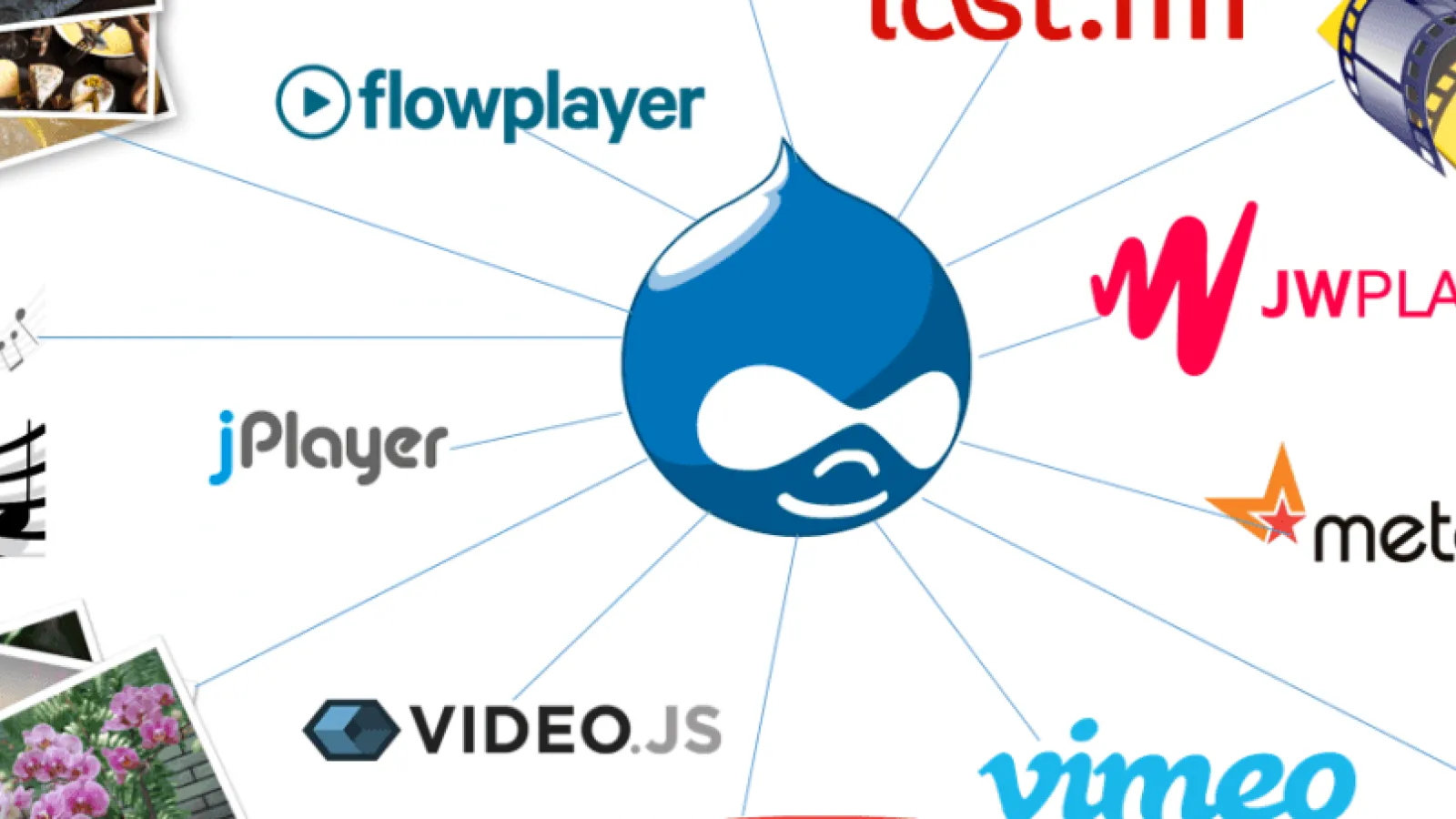Everything about building a website or a web application is not just coding and hosting an app. It includes a thorough ecosystem research and co-designing a scalable product to cooperate and compete within the networked internet of things. Drupal is the perfect platform to build large systems like CRM system or ERP system, which is complicated as well as data oriented.
The data acquired is first organized appropriately and then analyzed to make essential business decisions. Various underlying platforms serve critical aspects in the complete system, which work really well with applications developed with Drupal. Management, governance and security are always on the top of the list when it comes to media and entertainment companies.
Building a complex website with Drupal is like a ladder worth climbing. You will have complete access to modules created by some of the most sought after developers in the world also, your website will run on a CMS that is designed for maximum scalability, customization and reliable maintenance. You can get endless features with Drupal using the horde of modules available, many of which are maintained by professional developers. Read more about reducing costs with big data.
How can Drupal facilitate a complicated data oriented website? Let us look into some key features that Drupal has to offer.
CONTENT TYPES: With content types and views you can build easy to use forms that will aggregate the information entered, in all the required places. For example, when a user wants to add a new event to the site, they can fill out a simple form which will mainly include fields for the title, long or short descriptions or both, venue, date and time, duration of the event and the required Call-to-Action links. After the user submits the information, all the pieces of information are put in their rightful place including a brief introduction in the calendar, full description on the events page and a teaser on the homepage.
The same concept is used for any type of content one would like to apply onto their website. User types, products, ads, teasers etc.
FLEXIBILITY: Drupal is a really flexible platform. The right developers can shape the system into whatever you need. It is configured to suit your needs today and also scalable to a large extent to facilitate your future needs.
SECURITY: Drupal has a really good track record in terms of being secure. It has an organized process for verifying, investigating and publishing possible security issues.
It has a dedicated team which is constantly working with the community to address security issues and they come up.
Members of the security team sometimes perform analyses of core or contributed project code, especially if there is a weakness that can be found by easy scanning.
SCALABILITY: If your website gets hit with a lot of traffic, it is possible that your site can go down and it won't matter even if you are delivering the world’s best digital experience. Drupal has the capability to keep your website running when you are really popular. More than a million sites are powered by Drupal worldwide for eg: Grammy awards and NBC Olympics because the get hit with traffic bursts at times. Drupal’s scalability ensures that your site will perform fabulously and always run on turbo mode even on the busiest days.
Drupal is a great choice for for sites that will continue to grow over time. The perfect example would be examiner.com which keeps growing.
ROBUSTNESS: Apart from its scalability, Drupal platfrom is quite capable and it can handle a small mom-and-pop marketing brochure websites to huge data oriented sites like grammy.com (which can handle millions of users on the website within a period of two hours without crashing or even a glitch). No matter what size project you are looking at, Drupal is quite adequate and efficient to handle it.
FLEXIBLE FRAMEWORK: Rather than just a CMS, Drupal is a flexible framework. Drupal offers a solid foundation of solutions that majority of websites and web systems require. you can build on top of that to create any application that you require. Additionally, once the system is built in Drupal, not only can you bolt on new features in the future, there is a large community of users out there that can pick up where one left off.
OPEN SOURCE COMMUNITY:
The Drupal community is massive and very active. Of all the technology communities with which We’ve interacted, not one matches the Drupal community. Everyone is focused around the act of sharing and helping their fellow Drupal users grow. Rarely does one stumble across someone that isn’t willing to share or educate. And most of the time the answer to one of your questions (challenges) is just a Google search away. This helps shorten development time so that your websites are up and running quickly even if you come across a challenge.
Here are some real-world examples of using Drupal for Big Data in action:
- Consumer product companies and retail organizations are monitoring social media like Facebook and Twitter to get an unprecedented view into customer behavior, preferences, and product perception.
- The government is making data public at both the national, state, and city level for users to develop new applications that can generate public good.
- Financial Services organizations are using data mined from customer interactions to slice and dice their users into finely tuned segments. This enables these financial institutions to create increasingly relevant and sophisticated offers.
- Advertising and marketing agencies are tracking social media to understand responsiveness to campaigns, promotions, and other advertising mediums.
- By embracing social media, retail organizations are engaging brand advocates, changing the perception of brand antagonists, and even enabling enthusiastic customers to sell their products.
- Web-based businesses are developing information products that combine data gathered from customers to offer more appealing recommendations and more successful coupon programs.
To conclude, Drupal is the most sought after platform to build complicated data oriented systems by larger companies. It can power small to large sized businesses alike. It has a great open source community. It’s features like security and scalability are more advanced as compared to the other content management platform and development framework providing companies. It can be incorporated with big data management and is the perfect platform for it because of it’s robustness.





